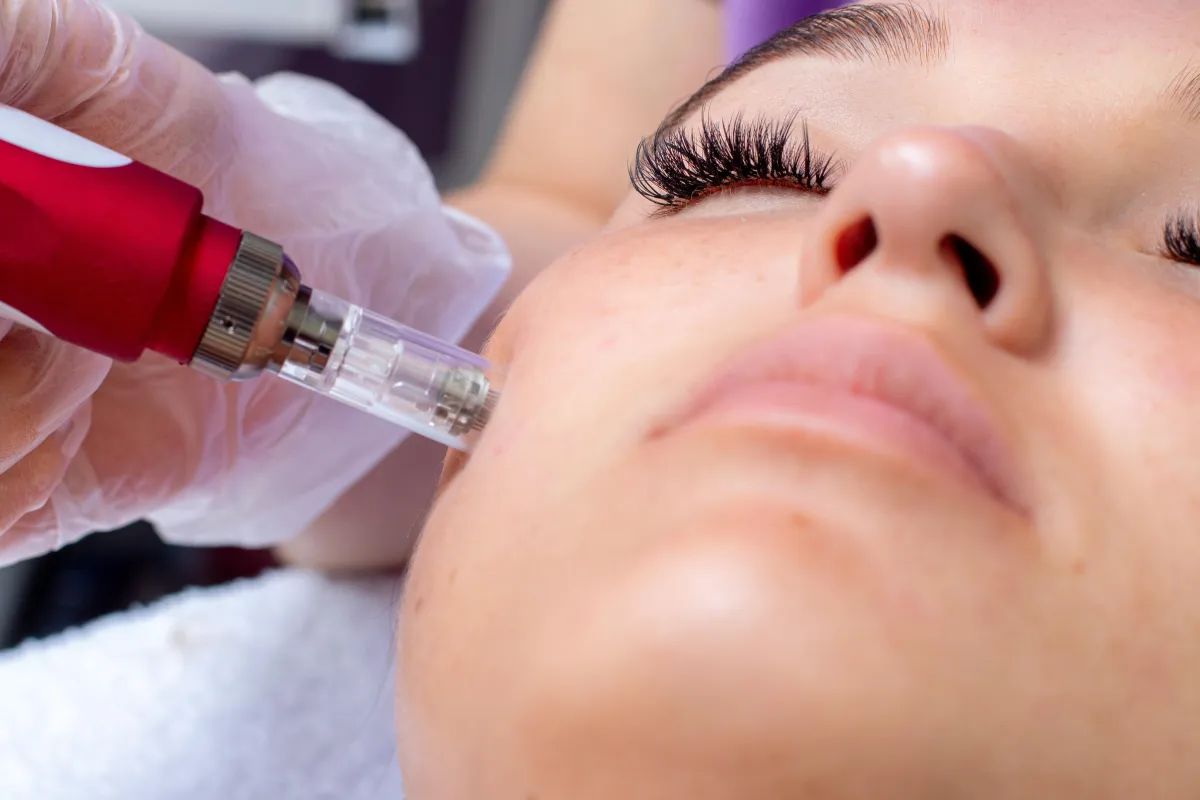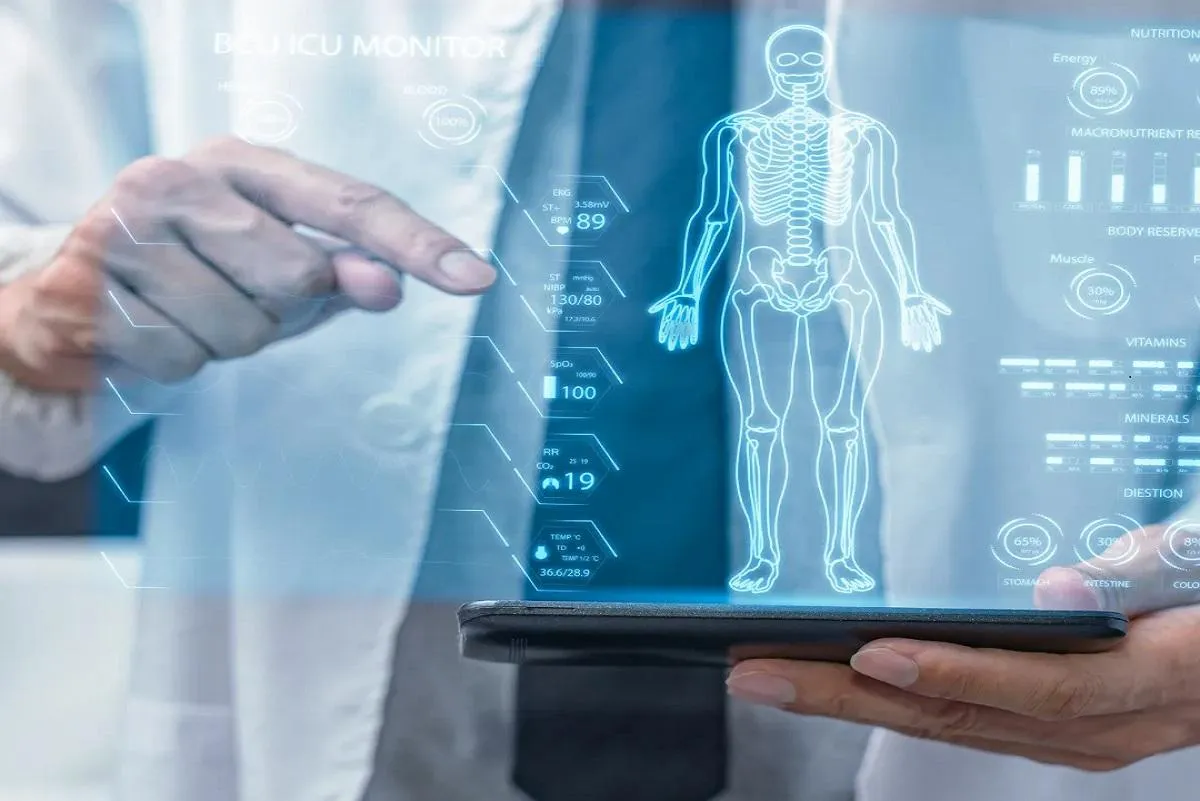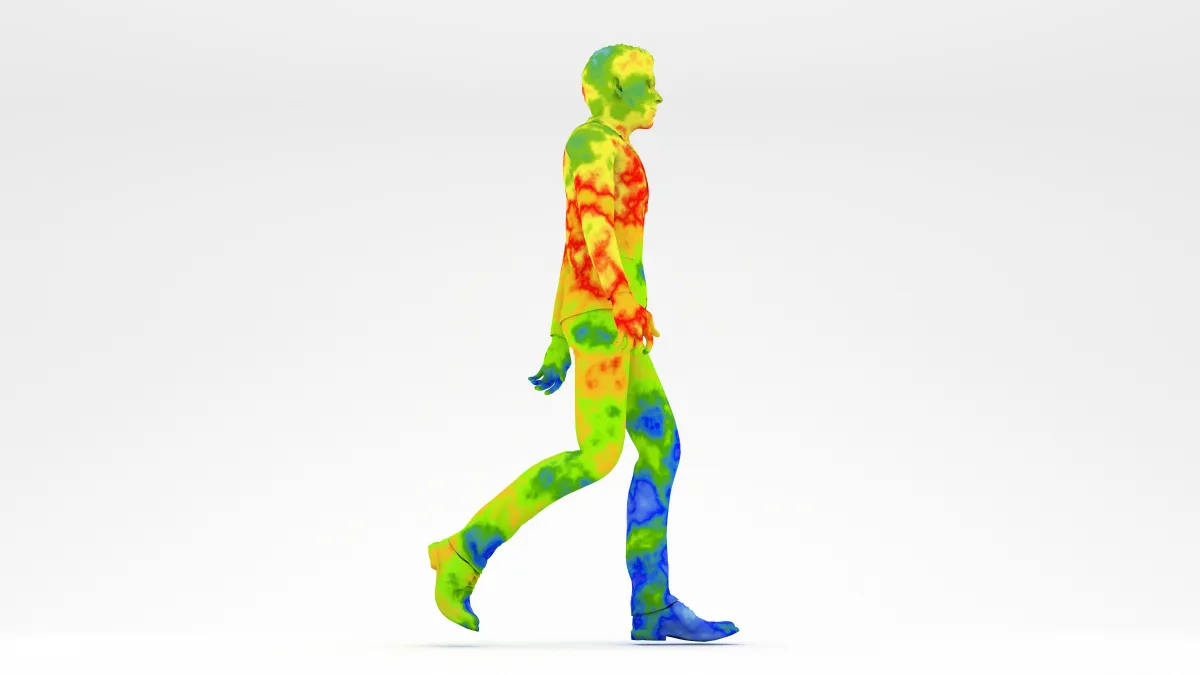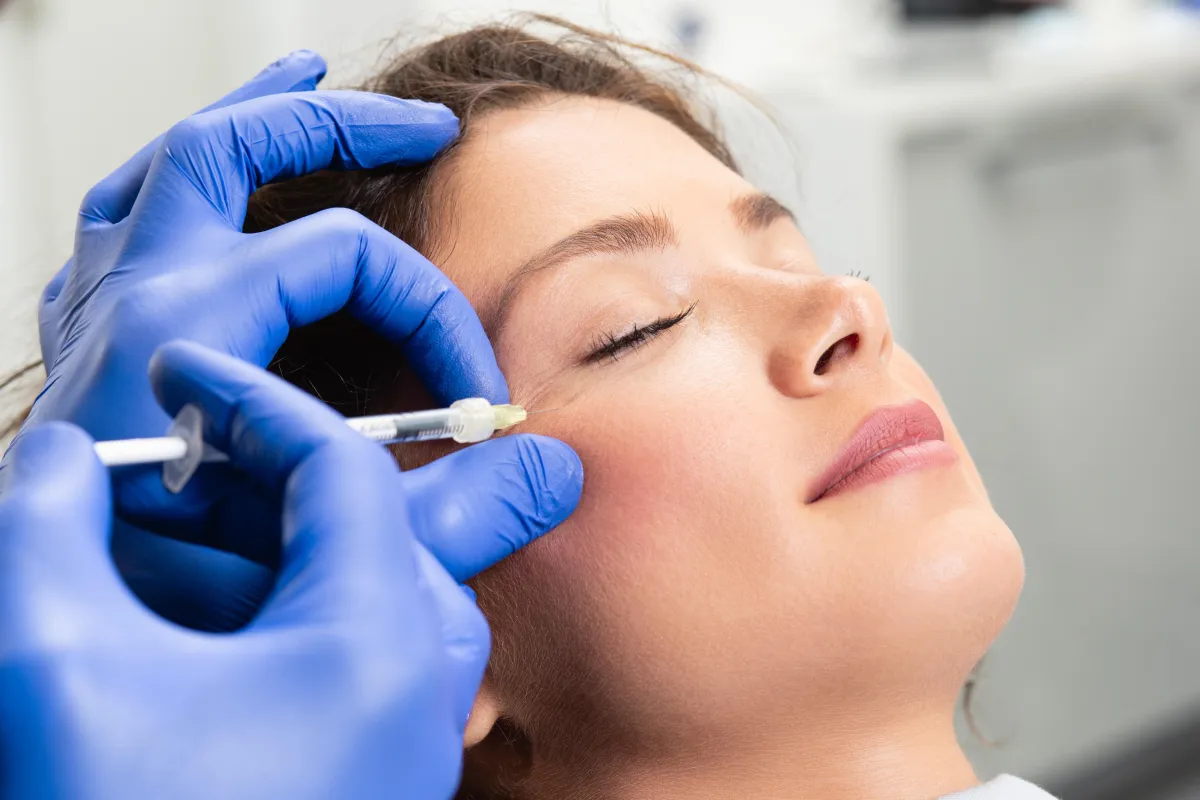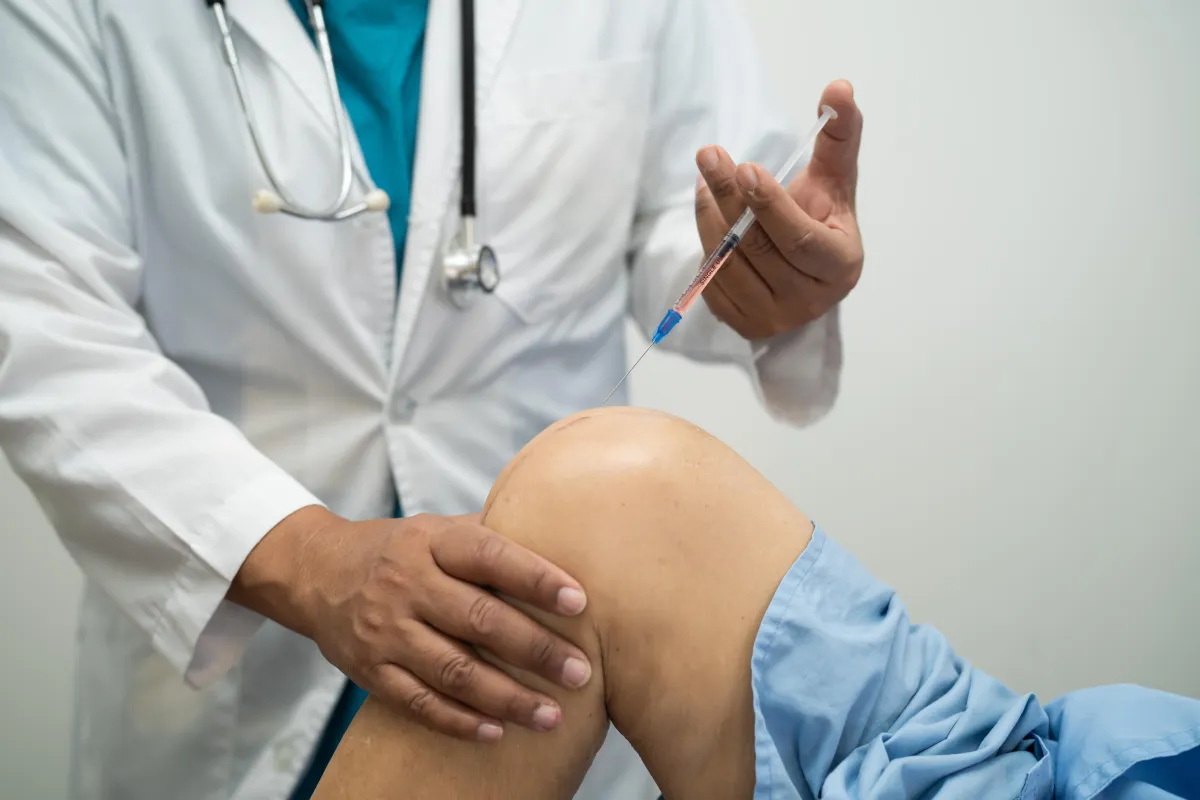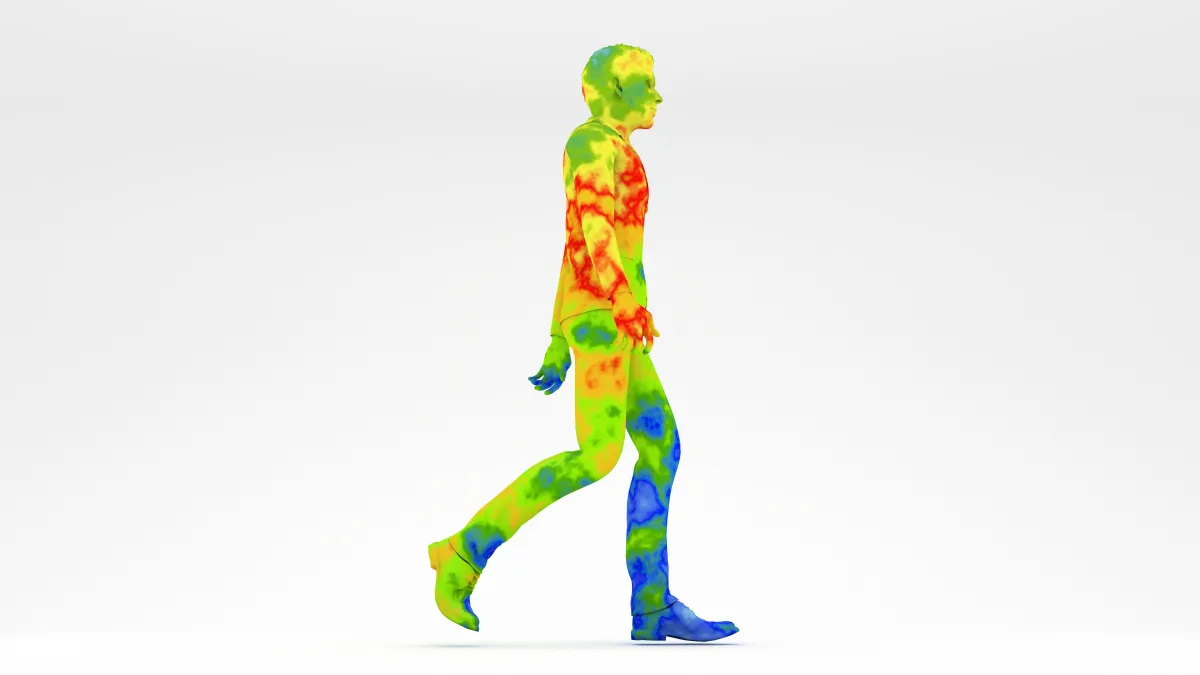Welcome to the Chambers Clinic Blog
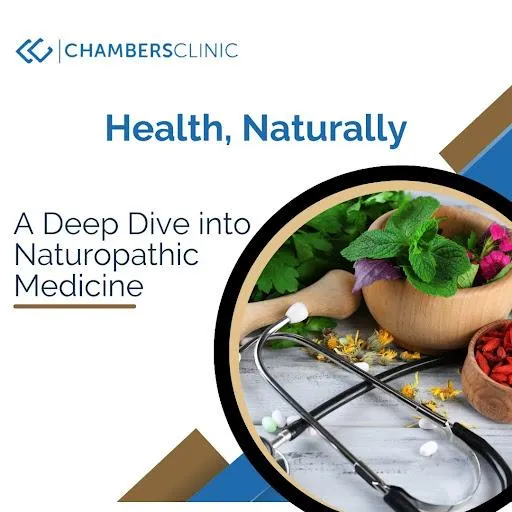
Health, Naturally: A Deep Dive into Naturopathic Medicine
Embracing Nature's Path: An Extensive Exploration of Naturopathic Medicine
Introduction: Nurturing Health Through Nature
In today's fast-paced world, the pursuit of health often feels like a daunting task. Yet, nestled within the folds of nature lies a treasure trove of remedies waiting to be unearthed. Welcome to the realm of naturopathic medicine, where the healing power of the earth is embraced, and wellness is viewed through the lens of holistic care.
Ready to embark on your journey to holistic wellness?
Visit Chambers Clinic today and discover the transformative potential of naturopathic medicine. Let us guide you on the path to optimal health and vitality!
Section 1: Unveiling Naturopathic Medicine

Understanding the Essence
At its core, naturopathic medicine is more than just a healing modality; it's a philosophy that reveres the body's innate ability to heal itself. Rooted in ancient healing traditions and modern scientific principles, it offers a comprehensive approach to healthcare, addressing not only symptoms but also the underlying causes of illness.
Naturopathic Principles: A Deeper Dive
The six fundamental principles of naturopathic medicine serve as guiding lights for practitioners and patients alike. Each principle embodies a profound understanding of the body's interconnectedness with nature and underscores the importance of treating the whole person rather than isolated symptoms.
The Principles of Naturopathy
Naturopathic medicine is guided by six fundamental principles:
The Healing Power of Nature: Naturopathy recognizes the inherent wisdom of the body and its ability to heal when provided with the right conditions.
Identify and Treat the Causes: Rather than merely suppressing symptoms, naturopathic doctors seek to uncover and address the root causes of illness, fostering long-term healing and vitality.
First, Do No Harm: Naturopathic interventions prioritize gentle, non-invasive therapies that minimize the risk of adverse effects and support the body's natural healing processes.
Doctor as Teacher: Naturopathic doctors empower patients to take an active role in their health by providing education, guidance, and support throughout their healing journey.
Treat the Whole Person: Recognizing the interconnectedness of mind, body, and spirit, naturopathic medicine takes a holistic approach to healthcare, addressing not only physical symptoms but also emotional, mental, and spiritual well-being.
Prevention is the Best Cure: By emphasizing preventive measures and lifestyle modifications, naturopathic medicine aims to promote optimal health and reduce the risk of future illness.
Section 2: Journey to Becoming a Naturopathic Doctor

The Path of Education
Becoming a naturopathic doctor is a journey marked by rigorous education and training. Prospective practitioners undergo a comprehensive curriculum encompassing both conventional medical sciences and natural healing modalities.
Naturopathic Education: A Comprehensive Overview
Naturopathic medical programs offer a robust curriculum designed to equip students with the knowledge and skills necessary to provide high-quality patient care. From anatomy and physiology to herbal medicine and nutrition therapy, students delve into a diverse array of subjects that form the foundation of naturopathic practice.
Training and Accreditation
Accredited naturopathic programs typically span four to six years, blending classroom instruction with hands-on clinical experience. Upon graduation, aspiring naturopathic doctors must pass rigorous licensing examinations to practice legally.
The Road to Licensure: Challenges and Opportunities
Navigating the licensure process can be both challenging and rewarding for aspiring naturopathic doctors. While standardized licensing exams ensure competency and proficiency, varying regulations across states present unique obstacles that must be overcome to establish a successful practice.
The Role of Naturopathic Doctors
Naturopathic doctors serve as primary care physicians, offering a wide range of services, including:
Preventive healthcare: Through personalized wellness plans and routine screenings, naturopathic doctors empower patients to prioritize their health and well-being.
Diagnosis and treatment of acute and chronic conditions: By addressing the underlying causes of illness, naturopathic doctors help patients achieve sustainable relief and long-term healing.
Lifestyle counseling: From stress management techniques to dietary modifications, naturopathic doctors provide comprehensive guidance to support patients in adopting healthier habits and behaviors.
Herbal medicine: Drawing upon the healing properties of plants, naturopathic doctors prescribe botanical remedies to address a wide range of health concerns, from digestive disorders to immune support.
Nutrition therapy: By tailoring dietary recommendations to individual needs and preferences, naturopathic doctors optimize nutrient intake and promote overall wellness.
Physical medicine: Through modalities such as acupuncture, chiropractic adjustments, and massage therapy, naturopathic doctors alleviate pain, improve mobility, and enhance the body's natural healing processes.
Stress management techniques: From meditation and breathwork to biofeedback and relaxation exercises, naturopathic doctors teach patients practical strategies for managing stress and enhancing resilience.
Section 3: Exploring Naturopathic Treatments

A Multifaceted Approach
Naturopathic treatments encompass a diverse array of modalities, each tailored to meet the unique needs of the individual. From botanical medicines to hydrotherapy, these therapies aim to restore balance and vitality to the body.
Naturopathic Therapies: A Holistic Toolbox
The therapeutic arsenal of naturopathic medicine includes:
Herbal Medicine: Herbal remedies harness the healing properties of plants to address a wide range of health conditions, from digestive disorders to respiratory ailments.
Nutritional Therapy: By emphasizing whole foods and targeted supplementation, nutritional therapy provides essential nutrients to support optimal health and well-being.
Hydrotherapy: Water-based therapies, such as hydrotherapy baths and compresses, promote circulation, reduce inflammation, and support detoxification.
Physical Medicine: Hands-on modalities, including massage therapy, acupuncture, and chiropractic adjustments, help alleviate pain, improve mobility, and enhance overall well-being.
Mind-Body Medicine: Techniques such as meditation, yoga, and biofeedback harness the power of the mind to promote relaxation, reduce stress, and support emotional balance.
Homeopathy: Based on the principle of "like cures like," homeopathic remedies stimulate the body's innate healing response to address symptoms and restore health.
Traditional Chinese Medicine (TCM): Acupuncture, herbal medicine, and other TCM modalities restore balance to the body's energy systems, promoting harmony and vitality.
Herbal Medicine: Nature's Pharmacy
Herbal medicine lies at the heart of naturopathic practice, harnessing the therapeutic properties of plants to promote healing. From echinacea for immune support to lavender for relaxation, the botanical kingdom offers a wealth of remedies for various ailments.
Exploring Herbal Remedies: From Tradition to Science
While herbal medicine has been used for millennia to treat a wide range of health conditions, modern scientific research is shedding new light on its efficacy and safety. From randomized controlled trials to systematic reviews, studies are uncovering the mechanisms of action behind herbal remedies and their potential role in integrative healthcare.
Nutritional Therapy: Food as Medicine
Nutrition plays a pivotal role in naturopathic medicine, serving as the foundation of health and vitality. Naturopathic doctors employ personalized dietary plans to address nutritional deficiencies, support healing, and optimize overall well-being.
Nourishing the Body: The Power of Nutrient-Rich Foods
A nutrient-dense diet is essential for promoting optimal health and preventing disease. By emphasizing whole foods, plant-based sources of protein, and healthy fats, naturopathic doctors help patients fuel their bodies with the nutrients they need to thrive.
Physical Medicine: Healing Hands
Physical medicine modalities such as massage, chiropractic adjustments, and acupuncture are integral components of naturopathic care. These hands-on therapies work to alleviate pain, improve mobility, and enhance the body's natural healing processes.
The Art of Touch: Restoring Balance and Harmony
Through skilled manipulation of the body's soft tissues and energy meridians, physical medicine practitioners facilitate the flow of vital energy, promoting relaxation, pain relief, and overall well-being. From Swedish massage to trigger point therapy, each modality offers unique benefits for mind, body, and spirit.
Mind-Body Medicine: Nurturing the Soul
Recognizing the interconnectedness of mind, body, and spirit, naturopathic medicine emphasizes the importance of mental and emotional well-being. Techniques such as meditation, biofeedback, and counseling empower patients to cultivate resilience and inner harmony.
Cultivating Mindfulness: The Path to Emotional Wellness
In a world characterized by stress and uncertainty, mindfulness offers a sanctuary of peace and tranquility. By training the mind to focus on the present moment, mindfulness practices promote relaxation, reduce anxiety, and enhance overall emotional well-being.
Section 4: Navigating the Intersection of Science and Nature

Bridging the Gap
While rooted in traditional wisdom, naturopathic medicine is also evolving in tandem with modern scientific advancements. Research studies and clinical trials are shedding new light on the efficacy and safety of natural therapies, paving the way for greater integration within mainstream healthcare.
The Science of Healing: Exploring the Evidence
From laboratory studies to clinical trials, scientific research plays a crucial role in validating the efficacy and safety of naturopathic treatments. By adhering to rigorous standards of evidence-based practice, naturopathic doctors ensure that their interventions are grounded in scientific rigor and clinical efficacy.
Evidence-Based Practice
The pursuit of evidence-based medicine is a cornerstone of naturopathic practice, ensuring that treatments are grounded in scientific rigor and clinical efficacy. By staying abreast of the latest research findings, naturopathic doctors strive to provide the highest standard of care for their patients.
Building a Bridge: Integrating Science and Tradition
As the demand for integrative healthcare continues to grow, bridging the gap between science and tradition becomes increasingly important. By fostering collaboration between conventional and naturopathic practitioners, we can harness the best of both worlds to optimize patient outcomes and promote holistic healing.
Section 5: Embracing Collaboration and Integration
Fostering Synergy
In an era of increasingly complex healthcare needs, collaboration between conventional and naturopathic practitioners is paramount. By working together, healthcare providers can offer patients a comprehensive and personalized approach to healing that draws upon the best of both worlds.
Collaborative Care Models: A Blueprint for Success
From integrative health clinics to interdisciplinary treatment teams, collaborative care models offer a blueprint for success in the evolving landscape of healthcare. By leveraging the expertise of diverse practitioners, these models ensure that patients receive the most comprehensive and effective care possible.
Frequently Ask Questions (FAQs):
Addressing Common Concerns
Are naturopathic treatments safe?
Naturopathic treatments are generally considered safe when prescribed by qualified practitioners. However, it's essential to consult with a licensed naturopathic doctor to ensure that treatments are appropriate for your individual health needs.
Can naturopathic medicine treat serious medical conditions?
Naturopathic medicine can complement conventional treatments for a wide range of medical conditions, including chronic illnesses. However, it's crucial to work closely with your healthcare team to develop a comprehensive treatment plan that addresses all aspects of your health.
Will my insurance cover naturopathic treatments?
While coverage for naturopathic services varies depending on your insurance provider and policy, an increasing number of insurers are recognizing the value of integrative healthcare. It's advisable to check with your insurance company to determine your coverage options.
Final Thoughts: Embracing a Holistic Approach to Health
In a world inundated with quick fixes and pharmaceutical solutions, naturopathic medicine offers a refreshing alternative rooted in the wisdom of nature. By honoring the body's innate capacity for healing and embracing a holistic approach to care, we can embark on a journey of true wellness—one that nourishes not only the body but also the mind and spirit.
So, let Chambers Clinic heed the call of nature and embark on this transformative path towards health and vitality!
Other Services
At Chamber's Clinic, we offer a variety of services to help you improve your health. We hope that you will give us a call to schedule an appointment and see how we can help you reach your health goals!
Some of our services include:
Is there a service that you are looking for that is not listed above? Book a call with us below to talk with us about your personal needs!
References and Articles
Extracellular vesicle-based therapy for amyotrophic lateral sclerosis
Amyotrophic lateral sclerosis (ALS) is a disease that causes the fast breakdown of motor neurons in the brain and spinal cord. These motor neurons are essential for controlling muscle movement, and their loss leads to disability. There are few treatments for ALS, so new methods to prevent further damage to motor neurons are urgently needed. One way to protect motor neurons could be by fixing the barrier between the blood and the central nervous system (CNS). This barrier helps to prevent harmful substances in the blood from entering the CNS and causing damage. In ALS, this barrier is not working properly, which may lead to the motor neuron damage.Researchers have found that certain cells from human bone marrow, called endothelial progenitor cells (hBM-EPCs), may help repair this barrier. These cells can release factors that help heal damaged cells in the barrier. Additionally, they produce small particles called extracellular vesicles (EVs) that carry helpful substances, which can further assist in fixing the damaged cells. In a laboratory study, these EVs were taken up by mouse brain cells, and the damage to these cells was significantly reduced. However, when a molecule called β1 integrin was blocked, the EVs could not be taken up by the cells. This research suggests that hBM-EPCs, and specifically the EVs they produce, may have potential as a new treatment for ALS by repairing the damaged blood-CNS-barrier.
Read more here: https://www.ncbi.nlm.nih.gov/pmc/articles/PMC8057104/https://www.ncbi.nlm.nih.gov/pmc/articles/PMC8057104/
The combination of autologous mesenchymal stem cell-derived exosomes and neurotrophic factors as an intervention for amyotrophic lateral sclerosis
Amyotrophic lateral sclerosis (ALS) is a disease that causes the gradual breakdown of motor neurons, leading to high mortality. Currently, only two medications, Riluzole and Edaravone, are approved for ALS treatment, but they can cause serious side effects like liver and kidney damage. As of now, there is no effective treatment for ALS.Researchers are looking into using exosomes, mesenchymal stem cells, and neurotrophic factors to help treat ALS. In this analysis, we'll discuss how these elements could be combined to potentially create an effective treatment for the disease.Mesenchymal stem cells can help control the immune system, reduce oxidative stress, encourage nerve cell regeneration, and transform into nerve and glial cells. Exosomes from these stem cells also have positive effects, preventing the abnormal development of the stem cells.Neurotrophic factors, on the other hand, can help control inflammation, stimulate nerve repair, and aid in the recovery of nerve function. By combining exosomes from mesenchymal stem cells with neurotrophic factors, researchers believe this approach could potentially be an effective treatment for ALS.
Read More Here: https://pubmed.ncbi.nlm.nih.gov/35278658/
Emerging role of mesenchymal stromal cells (MSCs)-derived exosome in neurodegeneration-associated conditions: a groundbreaking cell-free approach
Many studies suggest that the positive effects of mesenchymal stromal cells (MSCs) come from the release of soluble substances, making them a possible option for repairing damaged tissue. MSC-derived exosomes, tiny particles released by these cells, have great potential for treating neurodegenerative diseases due to their unique immune and regenerative properties.Using exosomes instead of directly administering MSCs can avoid certain issues, such as tumor formation or limited movement to brain tissue. Importantly, these exosomes can pass through the blood-brain barrier and deliver their contents (like proteins, miRNAs, lipids, and mRNA) to damaged brain tissue. These substances can affect various processes in neurons, oligodendrocytes, and astrocytes.Research has shown that administering MSC-derived exosomes in animals with neurodegenerative diseases can lead to positive results by supporting the blood-brain barrier, promoting the growth of blood vessels, reducing inflammation, and encouraging the growth of new nerve cells. In this review, we will provide an overview of the therapeutic benefits of MSC-derived exosome therapy for acute and chronic neurodegenerative diseases and explain the mechanisms behind these positive effects.
Learn More Here: https://stemcellres.biomedcentral.com/articles/10.1186/s13287-022-03122-5
Intra-Articular Injections of Mesenchymal Stem Cell Exosomes and Hyaluronic Acid Improve Structural and Mechanical Properties of Repaired Cartilage in a Rabbit Model
In a study comparing treatments for tissue defects, exosomes combined with hyaluronic acid (HA) showed significant improvements in appearance and tissue quality at both 6 and 12 weeks compared to defects treated with just HA. Additionally, the defects treated with exosomes and HA showed better mechanical properties, with higher levels of stiffness and elasticity (Young's moduli) at both time points. By 12 weeks, the repaired tissue in defects treated with exosomes and HA was mostly made up of hyaline cartilage, which is mechanically and structurally superior to that of the HA-treated defects. The mechanical properties of the repaired tissue were similar to that of the surrounding healthy cartilage. In contrast, defects treated with HA alone showed some repair at 6 weeks, but this did not last, as shown by a decline in tissue quality and no improvement in mechanical properties from 6 to 12 weeks.
Read More Here: https://pubmed.ncbi.nlm.nih.gov/32302651/
Recent Advances in the Application of Mesenchymal Stem Cell-Derived Exosomes for Cardiovascular and Neurodegenerative Disease Therapies
Exosomes are tiny particles that occur naturally in the body and are released and taken in by nearly all cells. They can move between cells and carry various substances related to their origin and function, such as proteins, lipids, and RNAs. Exosomes play a crucial role in cell communication, making them useful for delivering different types of drugs throughout the body. They are widespread in the circulatory system and can reach injury or disease sites by passing through biological barriers.Due to their unique structure and rich content, exosomes can be used for diagnosing and treating diseases. Exosomes derived from mesenchymal stem cells (MSCs-Exo) have the same functions as MSCs, like repairing and regenerating tissues, reducing inflammation, and regulating the immune system. This makes MSCs-Exo a natural drug delivery carrier with therapeutic effects, and they are increasingly used in treating cardiovascular and neurodegenerative diseases. In this article, we review the research progress of MSCs-Exo as drug delivery vehicles and their use in various drug deliveries, offering ideas and references for the study of MSCs-Exo in recent years.
Read More Here: https://www.ncbi.nlm.nih.gov/pmc/articles/PMC8949563/.
Therapeutic utility of mesenchymal stromal cell (MSC)-based approaches in chronic neurodegeneration: a glimpse into underlying mechanisms, current status, and prospects
Recently, mesenchymal stromal cell (MSC) therapy has become a highly regarded treatment option for neurodegenerative diseases. Many studies in animal models and some clinical trials have demonstrated the safety, feasibility, and effectiveness of MSC transplantation in conditions such as Alzheimer's disease (AD), Parkinson's disease (PD), Amyotrophic lateral sclerosis (ALS), and Huntington's disease (HD). The beneficial effects of MSC therapy are largely due to the secretion of immunomodulatory factors and various neurotrophic factors (NTFs), such as glial cell line-derived neurotrophic factor (GDNF) and brain-derived neurotrophic factor (BDNF). MSC therapy helps to degrade pathogenic protein aggregates, which are a hallmark of chronic neurodegenerative diseases, by secreting protein-degrading molecules. This process reduces neuroinflammation and provides neuroprotection, leading to cognitive and functional recovery and alleviation of disease symptoms. There is also evidence of MSC differentiation into neural-like cells in vivo. This article focuses on the therapeutic benefits of MSCs and their derivative exosomes as a cutting-edge, cell-free approach to treating AD, HD, PD, and ALS. Additionally, it highlights novel methods to enhance the therapeutic benefits of MSCs in these disorders, particularly through the administration of preconditioned MSCs.
Read more here: https://cmbl.biomedcentral.com/articles/10.1186/s11658-022-00359-z
Mesenchymal Stem Cells and MSCs-Derived Extracellular Vesicles in Infectious Diseases: From Basic Research to Clinical Practice
Mesenchymal stem cells (MSCs) have garnered significant attention in the field of regenerative medicine due to their therapeutic potential and unique properties. The ongoing COVID-19 pandemic has further emphasized the need for cell therapy in infectious diseases. This review aims to summarize the current scientific data on the use of MSCs and MSC-derived extracellular vesicles (MSC-EVs) in the treatment of infectious diseases. MSCs and MSC-EVs have been found to have immunomodulatory, anti-inflammatory, and antibacterial effects, as well as the ability to promote tissue regeneration and restoration of the epithelium. The use of MSC-EVs as a cell-free treatment strategy offers a promising solution to the safety concerns associated with cell therapy and has shown increased effectiveness in preclinical studies. This review presents both experimental data and clinical trials that support the use of MSCs and MSC-EVs in the treatment of infectious diseases, particularly in combination with antiviral drugs. The use of MSC-derived EVs represents a more promising cell-free treatment option, with high therapeutic potential demonstrated in preclinical studies.
Read More Here: https://www.mdpi.com/2306-5354/9/11/662
Mesenchymal stem cells for the treatment of neurodegenerative disease
Mesenchymal stem cells (MSCs) have gained attention as a potential tool for cell therapy and are currently being tested in FDA-approved clinical trials for a range of disorders, including myocardial infarction, stroke, meniscus injury, limb ischemia, graft-versus-host disease, and autoimmune disorders. Preclinical studies have shown MSCs to be effective in treating these and many other conditions. There is growing interest in using MSCs to treat neurodegenerative diseases, especially those that are fatal and difficult to treat, such as Huntington's disease and Amyotrophic lateral sclerosis. The regenerative approach for neurological diseases using MSCs involves cell therapies in which cells are delivered through intracerebral or intrathecal injection. Upon transplantation into the brain, MSCs can enhance endogenous neuronal growth, reduce apoptosis, limit free radical levels, enhance synaptic connections between damaged neurons, and regulate inflammation through paracrine actions. MSCs have been shown to promote functional recovery by producing trophic factors that support the survival and regeneration of host neurons. These therapies can either leverage the natural trophic support of MSCs or augment it through the delivery of growth factors, such as brain-derived neurotrophic factor or glial-derived neurotrophic factor, using genetically engineered MSCs as delivery vehicles. Clinical trials for MSC injection into the central nervous system to treat traumatic brain injury and stroke are ongoing. This article discusses the current data supporting the use of MSC-based cellular therapies for the treatment of neurodegenerative disorders.
Therapeutic potential of mesenchymal stem cells and their exosomes in severe novel coronavirus disease 2019 (COVID-19) cases
The novel coronavirus severe acute respiratory syndrome coronavirus 2 (SARS-CoV-2) is responsible for the global pandemic of coronavirus disease 2019 (COVID-19). The spread of the virus has had far-reaching impacts, including activity restrictions, economic disruption, and a strain on healthcare systems. Severe SARS-CoV-2 infection can trigger a cytokine storm, leading to serious health conditions such as acute respiratory distress syndrome (ARDS) and multiple organ failure, which require prompt treatment. Mesenchymal stem cells (MSCs) and their exosomes have been shown to have anti-inflammatory effects on immune cells, such as inducing anti-inflammatory macrophages, regulatory T and B cells, and regulatory dendritic cells, and inactivating T cells. This makes them a promising candidate for treating severe cases of COVID-19. This review provides background on severe cases of COVID-19, an overview of the mechanisms of action of MSCs and their exosomes, and a discussion of basic and clinical studies on the use of MSCs and exosomes for influenza-induced ARDS. Finally, it highlights the potential of MSC and exosome therapy for severe cases of COVID-19, based on clinical trials of MSCs (33 trials) and exosomes (1 trial) registered in 13 countries on ClinicalTrials.gov.
Read More Here: https://inflammregen.biomedcentral.com/articles/10.1186/s41232-020-00121-y
Efficacy and Safety of EXOSOME-MSC Therapy to Reduce Hyper-inflammation In Moderate COVID-19 Patients (EXOMSC-COV19)
In COVID-19 infections caused by the Severe acute respiratory syndrome coronavirus 2 (SARS-CoV-2), there is a disruption of the immune system response that leads to cytokine storm syndrome. SARS-CoV-2 acts like a hijacker, sabotaging communication between cells so that the immune system, such as T-cells, attacks not only infected cells but also healthy cells. This disruption results in hyper-inflammation, causing damage to various organs and contributing to the high mortality rate among COVID-19 patients.Exosomes are small vesicles, measuring 30-100 nanometers, that originate from within cells and serve as a means of communication with other cells. They are transport containers that contain bioactive cargo, such as proteins, genetic material, and various other molecules. These containers move from the cells of origin and flow through blood vessels or other body fluids to reach target cells, where they penetrate the cell membrane and act on various organelles within the cell.All cell types can produce exosomes, but their contents differentiate them. The exosome produced by mesenchymal stem cells (MSCs) contains bioactive cargo derived from MSCs, such as anti-inflammatory cytokines, growth factors, messenger RNA (mRNA), and micro RNA (miRNA). The target cells are immune system cells, infected cells, and progenitor cells from infected organs. On immune cells, the anti-inflammatory cytokines function as immunomodulators to relieve hyper-inflammation. In infected cells, the miRNAs work to prevent viral replication by inhibiting the expression of SARS-CoV-2 virus RNA (viral mRNA silencing and degradation). In lung progenitor cells and other infected organs, the growth factors stimulate protein synthesis processes that support organ regeneration.This study is a multi-center, double-blind, randomized controlled trial (RCT) with two arms: an intervention arm and a control arm. The EXOSOME-MSC will be tested as an adjuvant on top of standard COVID-19 drugs. Participants will receive two intravenous injections, on day 1 and day 7, during the 14-day study period.
Read more here: https://clinicaltrials.gov/ct2/show/NCT05216562
Immune Modulation by Exosomes in COVID-19 (IMECOV19)
In critically ill COVID-19 patients, hyperinflammation and progressive lung fibrosis may lead to lung failure and the need for extracorporeal oxygenation. This study will investigate the anti-inflammatory and immune-modulatory effects of mesenchymal stem cells through whole blood stimulation experiments using stem cell-derived exosomes. The preparations of exosomes have been characterized by their miRNA and protein expression patterns and have shown potential for tissue regeneration.The hypothesis of this study is that mesenchymal stem cell-derived exosomes will reduce inflammation and promote anti-fibrotic pathways.
Read more here: https://clinicaltrials.gov/ct2/show/NCT05191381
Mesenchymal stem cell-based therapy and exosomes in COVID-19: current trends and prospects
Novel coronavirus disease 2019 (COVID-19) is caused by the severe acute respiratory syndrome coronavirus-2 virus. COVID-19 triggers an excessive immune response, resulting in a cytokine storm and acute respiratory distress syndrome, which are the leading cause of COVID-19-related deaths and complications. Currently, there are no therapies that can effectively address the exacerbated immune response or cytokine storm associated with COVID-19. Mesenchymal stem cells (MSCs), through their immunomodulatory and regenerative properties, which are largely mediated through their paracrine effect and production of extracellular vesicles, show therapeutic potential in many autoimmune, inflammatory, and degenerative diseases. In this paper, we review clinical studies on the use of MSCs for COVID-19 treatment, including the positive effects of MSCs on the pathophysiology of COVID-19 and the modulation of the cytokine storm. We summarize ongoing clinical trial designs, cell sources, doses, administration methods, and populations, and discuss the paracrine mode of benefit. We also provide suggestions for enhancing MSC-based therapies, including genetic engineering, strategies for modifying cell surfaces, nanotechnology applications, and combination therapies.
Read More Here: https://stemcellres.biomedcentral.com/articles/10.1186/s13287-021-02542-z
Mesenchymal stem cell treatment for COVID-19
Severe acute respiratory syndrome coronavirus 2 (SARS-CoV-2) infection has caused a global pandemic since late 2019 that resulted in more than 360 million population infection. Among them, less than 7% of infected individuals develop severe or critical illness. Mass vaccination has been carried out, but reinfection and vaccine breakthrough cases still occur. Besides supportive and antiviral medications, much attention has been paid in immunotherapies that aim at reducing pathological changes in the lungs. Mesenchymal stem cells (MSCs) is used as an option because of their immunomodulatory, anti-inflammatory, and regenerative properties. As of January 16, 2022, when ClinicalTrials.gov was searched for “Mesenchymal stem cells and COVID-19,” over 80 clinical trials were registered. MSC therapy was found to be safe and some effective in preclinical and clinical studies. Here, we summarize the major pathological characteristics of COVID-19 and provide scientific and rational evidence for the safety and possible effectiveness of MSCs in COVID-19 treatment.
Read more here: https://www.thelancet.com/journals/ebiom/article/PIIS2352-3964(22)00104-9/fulltext
Cell Therapy for Neurological Disorders: The Perspective of Promising Cells
Neurological disorders are big public health challenges that are afflicting hundreds of millions of people around the world. Although many conventional pharmacological therapies have been tested in patients, their therapeutic efficacies to alleviate their symptoms and slow down the course of the diseases are usually limited. Cell therapy has attracted the interest of many researchers in the last several decades and has brought new hope for treating neurological disorders. Moreover, numerous studies have shown promising results. However, none of the studies has led to a promising therapy for patients with neurological disorders, despite the ongoing and completed clinical trials. There are many factors that may affect the outcome of cell therapy for neurological disorders due to the complexity of the nervous system, especially cell types for transplantation and the specific disease for treatment. This paper provides a review of the various cell types from humans that may be clinically used for neurological disorders, based on their characteristics and current progress in related studies.
Read more here: https://www.ncbi.nlm.nih.gov/pmc/articles/PMC8614777/
Extracellular Vesicles in Regenerative Medicine: Potentials and Challenges
The ultimate goal of regenerative medicine is to regain or restore the damaged or lost function of tissues and organs. Several therapeutic strategies are currently being explored to achieve this goal. From the point of view of regenerative medicine, extracellular vesicles (EVs) are exceptionally attractive due to the fact that they can overcome the limitations faced by many cell therapies and can be engineered according to their purpose through various technical modifications. EVs are biological nanoscale vesicles naturally secreted by all forms of living organisms, including prokaryotes and eukaryotes, and act as vehicles of communication between cells and their surrounding environment. Over the past decade, EVs have emerged as a new therapeutic agent for various diseases and conditions owing to their multifaceted biological functions. This is reflected by the number of publications on this subject found in the Web of Science database, which currently exceeds 12,300, over 85% of which were published within the last decade, demonstrating the increasing global trends of this innovative field. The reviews collected in this special issue provide an overview of the different approaches being explored in the use of EVs for regenerative medicine.
Read more here: https://www.ncbi.nlm.nih.gov/pmc/articles/PMC8300067/
TESTIMONIALS

The best place to receive actual care! If you’re tired of doctors practicing on you, come to Chambers Clinic and get true care—both preventative and healing! Dr. Chambers is an incredible Doctor. Really listens and cares about his patients and comes up with the best treatment for your lifestyle. Awesome people, Awesome staff! Go here. The way a doctor should be.
Melissa M
Regular Patient
A year ago I have suffered severe pain due to arthritis in my neck. I first tried a local chiropractor for 3 months with absolutely no results, just more pain. I made an appointment with Doctor Chambers finally, and he had me get an MRI. ...he discovered the inflamed nerve irritated by my degenerating bones, and recommended a treatment. I've had 2 treatments now (injecting platelets into the target area) and the pain and mobility is 80% better. The knowledge Doctor Chambers has and shared far exceeds anybody else I have talked to so far. His staff is visibly caring, and the facility gives off a feeling of gentle healing. It has a good energy. Chambers Clinic offers many services and based on what I've experienced and seen, it is well worth the visit for any number of ailments, or even just to boost your health. I cannot give 10 stars, so I'll have to settle with a five star review.
Steve S
Regular Patient
Chambers clinic is truly one of a kind one stop shopping for all of your health care needs! As an ICU nurse (retired), I have truly been returned to vibrant health and now cancer free thanks to the effective treatment (non-toxic) modalities implemented under the stellar guide and of Dr Jake Psenka
Maureen D
Regular Patient
I was sick constantly for 20 years. Conventional medicine seemed to hurt more than help. I was referred to Chambers Clinic and began my journey to health. I’m now 75 and in the best health I’ve had in years. I recommend chambers to anyone that needs to be their best.
Rex D
Regular Patient
CONTACT US
Phone: (480) 389-3265
Fax: (866) 869-0129
Text:(480) 571-0794
20801 N Scottsdale Rd., Suite 205
Scottsdale, AZ 85255
info@chambersclinic.com




